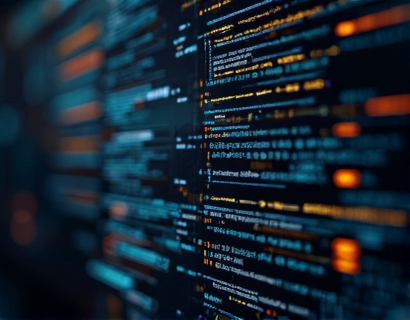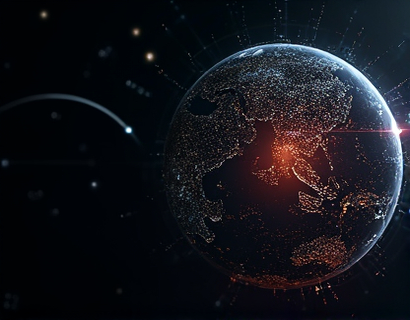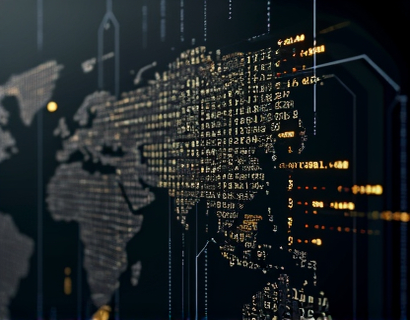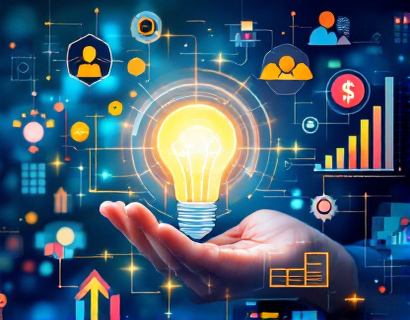AI Tools for Personal Organization: Streamline Life and Boost Productivity with Intelligent Solutions
In the fast-paced modern world, personal organization and productivity have become crucial for achieving success and maintaining a balanced life. The integration of Artificial Intelligence (AI) tools into daily routines offers a transformative approach to managing tasks, enhancing focus, and achieving goals more efficiently. This guide delves into the myriad of AI tools designed to revolutionize personal organization, providing practical insights and strategies for individuals looking to harness the power of intelligent solutions.
Understanding the Role of AI in Personal Organization
AI tools are not just about automating repetitive tasks; they are about intelligently managing and optimizing various aspects of personal and professional life. These tools leverage machine learning algorithms to understand patterns, predict outcomes, and provide actionable insights. For individuals, this means having a reliable companion that can handle complex organizational tasks with precision and efficiency.
The core benefits of AI in personal organization include enhanced time management, reduced stress, and improved focus. By offloading mundane tasks to AI, individuals can dedicate more time to high-value activities that align with their personal and professional goals. This shift not only boosts productivity but also contributes to a more structured and fulfilling life.
Task Management: Streamlining Your To-Do List
One of the most immediate and impactful areas where AI tools excel is task management. Traditional to-do list apps often fall short in providing a comprehensive and intelligent approach to managing tasks. AI-powered task managers, however, offer a more dynamic and adaptive experience.
These tools can prioritize tasks based on urgency and importance, suggesting the optimal order in which to tackle them. They can also learn from your habits and preferences over time, becoming more accurate in their predictions and recommendations. For instance, an AI task manager might recognize that you tend to be most productive in the morning and schedule critical tasks accordingly.
Moreover, AI task managers can integrate with other tools and services you use daily, such as calendars, email, and project management platforms. This seamless integration ensures that all your tasks are in one place, accessible from anywhere, and updated in real-time. The ability to set reminders, deadlines, and recurring tasks with precision further enhances the effectiveness of these tools.
Example Tools: Todoist and Microsoft To Do
Todoist is a popular AI-enhanced task manager that stands out for its robust feature set. It uses machine learning to prioritize tasks and provides insights into your productivity patterns. Microsoft To Do, on the other hand, integrates seamlessly with Microsoft 365, making it an excellent choice for those already invested in the Microsoft ecosystem. Both tools offer cross-platform support, ensuring that you can manage your tasks across devices without hassle.
Time Management: Optimizing Your Daily Schedule
Effective time management is a cornerstone of personal productivity. AI tools can significantly enhance your time management skills by providing intelligent scheduling and time-blocking features. These tools analyze your availability, task priorities, and even your energy levels to suggest the best times for specific activities.
For example, an AI-powered calendar can automatically block out time for deep work sessions, ensuring that you have uninterrupted periods to focus on critical tasks. It can also suggest breaks to prevent burnout, based on your work patterns and productivity metrics. This balanced approach to time management helps maintain high levels of productivity without compromising your well-being.
Additionally, AI can help identify time-wasting activities and suggest improvements. By tracking how you spend your time, these tools can provide actionable feedback and recommendations to optimize your daily routine. This data-driven approach ensures that you are not just busy, but truly productive.
Example Tools: Google Calendar and Toggl Track
Google Calendar, enhanced with AI capabilities, offers advanced time management features. It can suggest optimal meeting times based on participants' availability and even predict potential scheduling conflicts. Toggl Track, a time tracking tool, uses AI to analyze your work patterns and provide insights into how you spend your time. It helps identify areas where you can be more efficient and suggests ways to optimize your schedule.
Note-Taking and Information Management: Keeping Everything Organized
In the digital age, the amount of information we encounter daily can be overwhelming. AI tools for note-taking and information management help keep everything organized and easily accessible. These tools not only store your notes but also make them searchable and interconnected, allowing for quick retrieval of information when needed.
AI-powered note-taking apps can transcribe meetings automatically, extract key points, and even summarize long documents. They can also suggest related notes or articles based on your current context, enhancing your research and learning process. This capability is particularly useful for students, professionals, and anyone dealing with a high volume of information.
Example Tools: Evernote and Notion
Evernote is a well-established note-taking app that leverages AI to enhance its functionality. It can recognize handwritten notes, transcribe audio recordings, and even suggest tags and links based on the content. Notion, on the other hand, is a versatile workspace that combines note-taking, task management, and database features. Its AI-driven suggestions and seamless integration make it a powerful tool for maintaining an organized digital workspace.
Financial Management: Tracking Expenses and Budgeting
Managing finances effectively is essential for achieving long-term goals and reducing stress. AI tools for financial management provide a comprehensive solution for tracking expenses, creating budgets, and monitoring financial health. These tools can categorize transactions automatically, identify spending patterns, and offer insights to help you make informed financial decisions.
AI in financial management can also predict future expenses based on historical data, helping you plan better for the future. For instance, it can alert you to upcoming bills or suggest ways to save money by identifying unnecessary expenditures. This proactive approach to financial management ensures that you stay on top of your finances without constant manual effort.
Example Tools: Mint and YNAB (You Need A Budget)
Mint is a popular AI-driven financial management tool that connects to your bank accounts and credit cards to track your spending in real-time. It categorizes transactions automatically and provides a clear overview of your financial health. YNAB takes a more proactive approach by teaching users to allocate every dollar they earn to a specific purpose, helping to break the paycheck-to-paycheck cycle and build a solid financial foundation.
Health and Wellness: Monitoring and Improving Your Well-Being
Personal organization extends beyond just tasks and time; it also encompasses physical and mental well-being. AI tools in health and wellness can monitor your activities, sleep patterns, and even emotional state, providing personalized recommendations to improve your overall well-being.
Wearable devices and health apps powered by AI can track your fitness goals, suggest workout routines, and monitor your heart rate and other vital signs. These tools can also detect anomalies and alert you to potential health issues, ensuring that you take proactive steps to maintain your health. Additionally, AI-driven mindfulness and meditation apps can guide you through relaxation techniques, helping to reduce stress and enhance mental clarity.
Example Tools: Fitbit and Headspace
Fitbit is a leading wearable device that uses AI to track your physical activity, sleep quality, and heart rate. It provides personalized insights and goals to help you stay active and healthy. Headspace is a meditation and mindfulness app that uses AI to tailor meditation sessions to your mood and needs, making it easier to incorporate mindfulness into your daily routine.
Conclusion: Embracing AI for a More Organized and Productive Life
The integration of AI tools into personal organization offers a transformative opportunity to streamline daily tasks, enhance productivity, and achieve a more balanced life. By leveraging the power of intelligent solutions, individuals can save time, reduce stress, and focus on what truly matters. Whether it's managing tasks, optimizing time, organizing information, handling finances, or monitoring health, AI tools provide comprehensive and effective support.
Embracing these technologies does not mean relying solely on machines; it's about augmenting your capabilities and freeing up time to pursue your passions and goals. As AI continues to evolve, the potential for even more innovative and personalized organizational tools is vast. By staying informed and open to these advancements, individuals can take a significant step towards a more structured and fulfilling life.











































